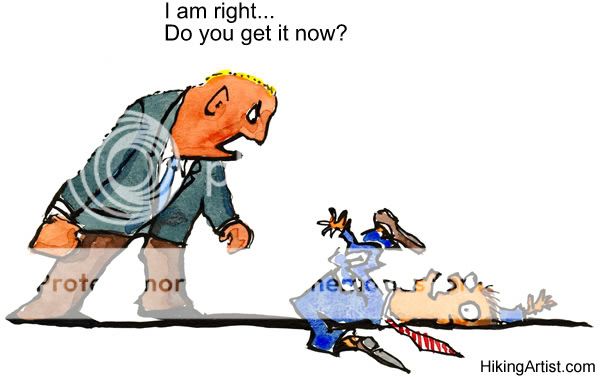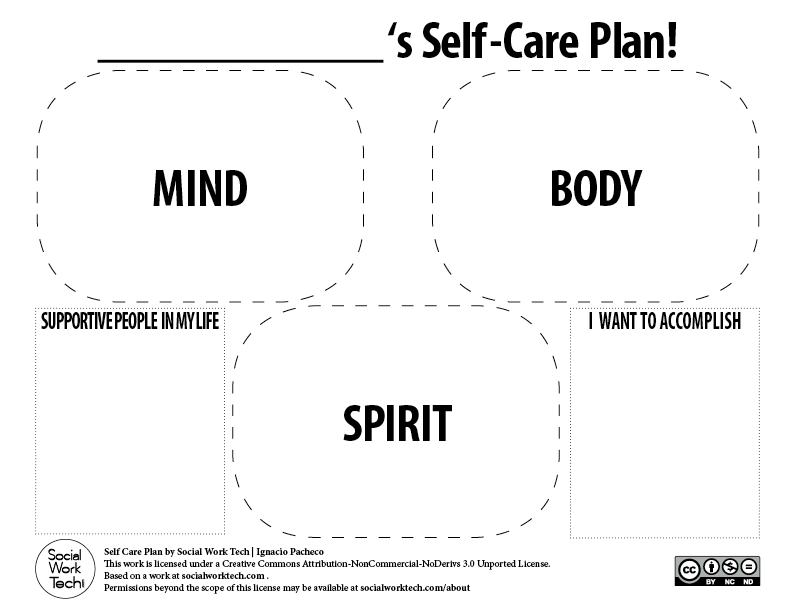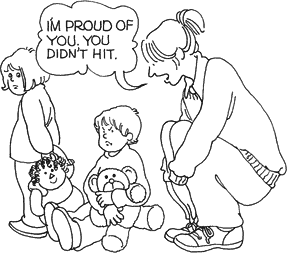Solutions & resources for adults, teens, couples, and families to assist with managing anger, stress, relationship issues, family & parenting problems.
Showing posts with label stress management. Show all posts
Showing posts with label stress management. Show all posts
Sunday, April 26, 2015
Anger & Stress: Is There A Connection?
Posted by
North Valley Anger Management Consultants:Anger Management For Modern Life
at
1:22 PM
No comments:


Labels:
Anger,
anger management,
anxiety,
depression,
family conflict,
marital discord,
self care,
self help,
stress,
stress check,
stress management,
stress techniques
Thursday, August 7, 2014
Cut Your Stress Today: Anger & Stress Management Tips For Busy People
With today's hectic schedule managing stress is an even more important key to successful anger management. Statistically, how we conceptualize the various demands in our lives and the emotional value we place on each of these many stresses makes all the difference in our ability to successfully juggle the often overwhelming demands of modern life, which broadly translates into how well we manage our anger. When we pair this combination with the very human tendency to protect our feelings by not talking about how we feel it equals a recipe for stressed out and angry people. Critically, the following example illustrates the connection between internalized thoughts and feelings and the enormous difference sharing our emotional burdens (internalized thoughts and feelings) with friends, family, or professional providers can make in the successful management of anger and stress.
" A young lady confidently walks around a room while explaining anger and stress management to an audience with a raised glass of water. Everyone in the room thought she was going to ask the ultimate question, 'half empty or half full?' She fooled them all .... "How heavy is this glass of water?" she inquired with a smile. Many answers were called out ranging from 8 oz. to 20 oz.
She replied , "The absolute weight doesn't matter. It depends on how long I hold it. If I hold it for a minute, that's not a problem. If I hold it for an hour, I'll have an ache in my right arm.
If I hold it for a day, you'll have to call an ambulance. In each case it's the same weight, but the longer I hold it, the heavier it becomes." She continued, "and that's the way it is with stress. If we carry our burdens all the time, sooner or later, as the burden becomes increasingly heavy, we won't be able to carry on."
"As with the glass of water, you have to put it down for a while and rest before holding it again. When we're refreshed, we can carry on with the burden - holding stress longer and better each time practiced. So, as early in the evening as you can, put all your burdens down. Don't carry them through the evening and into the night.
Metaphorical Tips to Help Successfully Manage Anger and Stress:
1 * Accept the fact that some days you're the pigeon and some days you're the statue!
2 * Always keep your words soft and sweet just in case you have to eat them.
3 * Always read stuff that will make you look good if you die in the middle of it.
4 * Drive carefully... It's not only cars that can be recalled by their Maker.
5 * If you can't be kind, at least have the decency to be vague.
6 * If you lend someone $20 and never see that person again, it was probably worth it.
7 * It may be that your sole purpose in life is simply to serve as a warning to others.
8 * Never buy a car you can't push.
9 * Never put both feet in your mouth at the same time, because then you won't have a leg to stand on.
10 * Nobody cares if you can't dance well. Just get up and dance.
11 * Since it's the early worm that gets eaten by the bird, sleep late.
12 * The second mouse gets the cheese.
13 * When everything's coming your way, you're in the wrong lane.
14 * Birthdays are good for you. The more you have, the longer you live.
15 * Some mistakes are too much fun to make only once.
16 * We could learn a lot from crayons. Some are sharp, some are pretty and some are dull. Some have weird names and all are different colors, but they all have to live in the same box.
17 * A truly happy person is one who can enjoy the scenery on a detour.
18 * Have an awesome day and know that someone has thought about you today.
AND MOST IMPORTANTLY
19 * Save the earth..... It's the only planet with chocolate!
References:
"Out of The Rough" by Fred Arnold
Posted by
North Valley Anger Management Consultants:Anger Management For Modern Life
at
12:41 PM
No comments:


Labels:
Anger,
anger management,
anger management technique,
emotional intelligence,
family,
stress,
stress management
Monday, March 24, 2014
Good Self Care Reduces Anger
Good Self Care Reduces Angry Outbursts
Self-care is a critical part of overall good health, but it is also a key component in managing our emotions. When self-care is neglected, one of the first warning signs is increased irritability and anger towards family and friends. In fact, successfully managing angry outbursts often depends on how well we manage our day to day responsibilities. Good self-care means good stress/anger management. Consequently, balance in all areas of day to day life is often the key.
Below is a self-care plan template published by Social Tech.Com. Notice the three areas of focus are the mind, body, and spirit. These represent the three domains of life (work/home/relationships). To achieve a healthy balance, equal attention and nurturing must be given to all three areas. Too much stress, or too much time devoted to any one area can cause increased stress and lead to anger, irritability and outbursts.
For more information regarding anger management, stress management, and self-care please feel free to visit our website at www.nvamc.com or call 1-888-992-6479.
Posted by
North Valley Anger Management Consultants:Anger Management For Modern Life
at
3:09 PM
No comments:


Labels:
Anger,
anger management,
Anger Management Class,
angry outburst,
emotional intelligence,
self care,
stress,
stress management
Monday, December 9, 2013
Is It Normal To Feel Angry?
Is anger normal? Absolutely! Everyone feels angry. It’s what we do with the feeling of anger that matters. Per George Anderson, LCSW, anger is a normal human emotion. In fact, anger is one of the first indications that a person may feel emotionally injured. It is important to note that anger is a secondary emotion that exists to protect people from feeling the more vulnerable emotions such as hurt, loss, grief, fear, offended, attacked, frightened, lonely or sad. This is not an uncommon response, often initiated by our psyche during times of stress in response to the more sensitive feelings.
Aside from emotional protection, anger can instill motivation and energy that often produce positive outcomes. Some examples of the positive uses of anger were observed during Martin Luther King’s struggles to end discrimination in America, and Nelson Mandela whose struggle against South Africa mobilized most of the world against his adversaries, and Rosa Parks whose anger was the source of the Montgomery Bus Boycott. Another example of a positive outcome as a result of anger is that of Mahatma Gandhi, whose anger and resulting passive resistance stance against England occurred in direct response to Britain’s domination of India.
However, anger also has very negative connotations, and when out of control is often associated with unhealthy and abusive aspects of the human condition. Anger maybe considered a problem when it is too intense, occurs too frequently, is harmful to self or others, lasts too long or leads to aggression. Unfortunately, as the economy continues to struggle and the cost of living remains sky high; incidents of unhealthy anger and aggression have increased ten fold worldwide. This increase is visible across all sectors of our society including government, politics, professional sports, business, education, and medicine.
If you or someone you love is experiencing unhealthy levels of anger or aggression, their emotional intelligence may no longer be effectively managed at the individual or family level, and may require voluntary and mandated training in stress management, anger management, communication and impulse control.
For more information about managing stressful emotions, please visit our website at www.nvamc.com, or call us at 1-888-992-6479.
Posted by
North Valley Anger Management Consultants:Anger Management For Modern Life
at
4:05 PM
No comments:


Labels:
aggression,
Anger,
Anger Management Class,
angry,
angry outburst,
emotional intelligence,
explosive rage,
family,
stress management
Wednesday, August 28, 2013
Why Parents Hit Their Children: Stopping The Cycle of Child Abuse
“The sins of the father shall be visited upon the
son” a very powerful and well known biblical
reference, from the book of Ezekiel,
regarding the raising of one’s family to be righteous. In fact, when we
consider the implications involved in parenting and raising a family, no truer
words have ever been spoken, but not for the reasons one might think. Biblically,
the inference of sinfulness is generally interpreted as impiety, and is avoided
via the father teaching a familial pattern of pious worship.
So how does this infamous quote from scripture apply to the modern family and why is it relevant? This profound and insightful verse is speaking to the multi-generational system of learned behavior that exists within a family. The question then becomes, how do people learn? Cultural Anthropology suggests the most powerful form of learning is observational. Therefore, we learn what we live, which is to say that which we see every day determines how we behave with one another other.
 Fortunately, through a combination of increased
awareness and psycho-education in the areas of parenting, anger management,
stress management and domestic violence programs it is more than possible to stop
the multi-generational cycle of child abuse. However, the first step is
increasing awareness. For purposes of clarity, please note that in the state of
California the only legal form of physical punishment a parent may use to
correct a transgression is for the parent to spank their child one time with an
open hand upon the child’s posterior. In addition, California further defines
child abuse as any form of physical contact that leaves a mark including
spanking should the spanking leave any marks upon the child’s posterior. If
you, or someone you love, is a victim of child abuse as stated above, intimate
partner violence, or other form of emotional or mental abuse including neglect
help is available 24-7 by calling 211, 1-800-540-4000, or 911. Remember, only
through awareness and advocacy will change occur. Being a child doesn’t have to
hurt!
Fortunately, through a combination of increased
awareness and psycho-education in the areas of parenting, anger management,
stress management and domestic violence programs it is more than possible to stop
the multi-generational cycle of child abuse. However, the first step is
increasing awareness. For purposes of clarity, please note that in the state of
California the only legal form of physical punishment a parent may use to
correct a transgression is for the parent to spank their child one time with an
open hand upon the child’s posterior. In addition, California further defines
child abuse as any form of physical contact that leaves a mark including
spanking should the spanking leave any marks upon the child’s posterior. If
you, or someone you love, is a victim of child abuse as stated above, intimate
partner violence, or other form of emotional or mental abuse including neglect
help is available 24-7 by calling 211, 1-800-540-4000, or 911. Remember, only
through awareness and advocacy will change occur. Being a child doesn’t have to
hurt!
So how does this infamous quote from scripture apply to the modern family and why is it relevant? This profound and insightful verse is speaking to the multi-generational system of learned behavior that exists within a family. The question then becomes, how do people learn? Cultural Anthropology suggests the most powerful form of learning is observational. Therefore, we learn what we live, which is to say that which we see every day determines how we behave with one another other.
Consequently, if a
parent physically disciplines their children then so too will the children grow
to hit their children when they misbehave. It follows then, that should the
parent hit their partner in the presence of the child, then the child learns
frustration is relieved and arguments are settled through physical force. In
short, according to Jon Piper,
“the sins of the
fathers are punished in the children through
becoming the sins of the children,” which is to say,
through observation and experience children learn what they live.
 Fortunately, through a combination of increased
awareness and psycho-education in the areas of parenting, anger management,
stress management and domestic violence programs it is more than possible to stop
the multi-generational cycle of child abuse. However, the first step is
increasing awareness. For purposes of clarity, please note that in the state of
California the only legal form of physical punishment a parent may use to
correct a transgression is for the parent to spank their child one time with an
open hand upon the child’s posterior. In addition, California further defines
child abuse as any form of physical contact that leaves a mark including
spanking should the spanking leave any marks upon the child’s posterior. If
you, or someone you love, is a victim of child abuse as stated above, intimate
partner violence, or other form of emotional or mental abuse including neglect
help is available 24-7 by calling 211, 1-800-540-4000, or 911. Remember, only
through awareness and advocacy will change occur. Being a child doesn’t have to
hurt!
Fortunately, through a combination of increased
awareness and psycho-education in the areas of parenting, anger management,
stress management and domestic violence programs it is more than possible to stop
the multi-generational cycle of child abuse. However, the first step is
increasing awareness. For purposes of clarity, please note that in the state of
California the only legal form of physical punishment a parent may use to
correct a transgression is for the parent to spank their child one time with an
open hand upon the child’s posterior. In addition, California further defines
child abuse as any form of physical contact that leaves a mark including
spanking should the spanking leave any marks upon the child’s posterior. If
you, or someone you love, is a victim of child abuse as stated above, intimate
partner violence, or other form of emotional or mental abuse including neglect
help is available 24-7 by calling 211, 1-800-540-4000, or 911. Remember, only
through awareness and advocacy will change occur. Being a child doesn’t have to
hurt!
For more information or resources about parenting, anger
management, or domestic violence batterers’ information programs please visit www.nvamc.com. For information about child
abuse resources or support please visit www.dcfs.lacounty.gov .
References:
Posted by
North Valley Anger Management Consultants:Anger Management For Modern Life
at
10:32 PM
No comments:


Labels:
abuse,
anger management,
child abuse,
children,
corporal discipline,
Domestic Violence,
ezekiel,
hit,
parenting,
parents,
physical discipline,
stress management
Saturday, August 10, 2013
Naughty Kid or Necessary Skill?
It’s Saturday night, and you and your loved one are having dinner
in an upscale local restaurant. The steak is cooked to perfection, the salad
crisp and well chilled, the conversation pleasant. You take a bite of tender
succulent beef, and begin to quietly chew all the while thinking to yourself
the night could not be more perfect. Suddenly, at the table next to you, a young
child begins to act out. You hear the parents say “no” several times, and then
the volume of the outburst begins to increase. It is at this point you realize
the child is in the beginning of a full blown tantrum. Your stomach begins to
sink, as the parents attempt to calm the child, because the harder they try the
louder the child yells. The next thing you know, you hear the sound of skin
hitting skin, as the parents begin yelling at the child to “Stop it!” It is at
this point you find yourself loosing your appetite and wondering what is wrong
with the child, the parents, or both?
Throughout the ordeal
you find yourself vacillating between wondering how the parents could both hit
and yell at there child in public, why they would dare to bring an ill behaved
child to a restaurant, and why they haven’t taken the child out to the car. As the child continues to kick, bite, yell,
and scream you realize the horrific spectacle playing out next to you is far
more than the anger of a petulant child; frustrated and dismayed, you begin accept
that date night is well and truly over and that you may have witnessed inappropriate
discipline of a minor ( CA law states corporal punishment is only legal when it
is involves an open hand on a child’s bottom and does not leave a mark.)
We've all been there, and witnessing such a display it is
never pleasant. The important thing to remember is
the child in this scenario deserves
compassion, not scorn. Keep in mind, the inappropriate behavior is not the
child’s fault. All behavior is learned through a combination of repetition and
reinforcement. The question then becomes, where did they learn to use such extreme
and inappropriate behavior to get their needs met, and why was it necessary?
In replaying the above scenario, what was truly witnessed
between the parents and the child? You
observed the child “acting out”, the parents saying “no”, the child not accepting
the answer, the parents hitting the child while yelling “stop it”, and the
child escalating to full tantrum with kicking, biting, and screaming. When
reviewing the incident, it becomes clear the child has learned to “turn up the
heat” to get needs met and as such is unable to accept limits due to negative
reinforcement of needs only met when escalated. Therefore, the child
demonstrates resilience in learning how to get daily needs met. Although
unpleasant to experience, the child’s naughty behavior is clearly a necessary
survival skill.
However, the parents’ behavior demonstrates a lack stress
management, displaced anger, inappropriate corporal discipline, a lack of emotional
intelligence, and poor parenting skills. How then could the situation have been
handled to generate a positive outcome? The National
Parenting Education Network recommends the following steps as a more
appropriate response to a child’s defiance, tantrums, angry outbursts, or
disruptive behavior when at home or in public:
1. State the rule
(Ex. in our family we don’t hit each other).
- 2. Time-out when a child chooses not to follow a rule. (One minute per year of age).
- 3. Use positive reinforcement when a child follows a rule.
- 4. Apply consequences in a consistent way (to make it easier use a prompt paired with a count of 3, and then move on with a time out when a child is not following a stated rule). A child eventually will expect to have negative consequences for negative behaviors. As parents, striving to teach good habits and values is a must.
- 5. Whenever parent can, he/she should celebrate positive behaviors to encourage and support desired changes (very important).
- 6. Make a plan with your child to celebrate when progress, so the child has something positive to look forward.
F
Posted by
North Valley Anger Management Consultants:Anger Management For Modern Life
at
6:27 PM
No comments:


Labels:
Anger,
Anger Group,
child,
corporal discipline,
disruptive behavior,
emotional intelligence,
naughty,
parenting,
stress management,
temper tantrums
Sunday, June 2, 2013
Anger Management: Is It A State of Mind?
For further information regarding anger management or other anger control concerns, please visit our website at www.nvamc.com, or call 1-888-99anrgy (1-888-992-6479). For additional information regarding states of mind including the emotional, rational, and wise mind please visit the following websites:
www.findingbalance.com
www.mybalancedlifecounseling.com
www.cdc.gov/CDCtv/FindingBalance
Posted by
North Valley Anger Management Consultants:Anger Management For Modern Life
at
12:00 PM
No comments:


Labels:
Anger,
anger management,
angry,
emotional mind,
impulsivity,
kari anderson,
rational mind,
stress management,
wise mind
Monday, May 27, 2013
Explosive Rage In Teenage Boys At Alarming Rate
In an alarmingly upward trend, teenage boys are increasingly
acting out in horrific acts of violent and explosive rage. Per The Guardian, one such tragic event
occurred on 24 May 2013, at which time a 15 year old boy allegedly killed his
adopted brothers (http://guardianlv.com/2013/05/west-point-utah-15-year-old-boy-allegedly-kills-adopted-brothers-10-and-4/),
in a small town, in West Point, Utah. Similarly,
per The LA Times, in January 2013, a
15 year old boy in New Mexico confessed to having killed his mother, father,
and three small siblings (http://articl es.latimes.com/2013/jan/21/nation/la-na-nn-albuquerque-griego-shooting-20130121). Regrettably, these are not isolated
incidents. In direct response to this growing trend in teen violence, enlightened parents are seeking
anger management education classes for their sons. Further, as part of a
proactive trend toward emotional intelligence training, anger management classes
are replacing punishment for teenage boys whose aggressive anger is alarming both their
parents and school personnel. The ongoing negative economic trend has impacted
the mood and stress levels of adults, children, and adolescents nationwide.
Anger, stress, and aggressive behavior are some of the consequences associated
with dramatic changes in socio-economic status. To punish an angry teen often leads to further negative alterations in his or her behavior. In contrast,
anger management classes, which are focused on increasing an individual’s emotional
intelligence by teaching skills in self-awareness, self-control, social
awareness and relationships, are more likely to result in skill enhancement in
the pivotal areas mentioned above. In fact, due to the fragile ego of teens, psychotherapy is often viewed as extremely
threatening and as such generally produces poorer outcomes. Therefore,
emotional intelligence for skill enhancement, in managing anger and stress,
delivered in a group setting, is a far more popular intervention with teenage
boys and is more likely to produce positive outcomes.
For further information regarding anger management education for teenage boys displaying disruptive, or anti-social behavior, please visit our website at www.nvamc.mobi or call 1-888-992-6479.
Posted by
North Valley Anger Management Consultants:Anger Management For Modern Life
at
8:00 PM
No comments:


Labels:
aggressive,
Anger,
anger class,
anger management,
Anger Management Class,
emotional intelligence,
explosive rage,
stress,
stress management,
Teen Anger
Saturday, May 18, 2013
Anger Management Is Part of Self Care 101
 In a recent mental health report, from the Office of the U.S. Surgeon General (U.S.Public Health Service), anger management classes are recommended as part of acomprehensive stress reduction program. The Surgeon General, in a clarion call for health promotion initiatives, underscores the importance of psycho educational interventions at a community level for a range of problems including parenting, stress management, and anger management classes. Because anger management is a broad spectrum intervention, it is notable for its wide applicability to a variety of constituencies for both primary and secondary stress prevention. For example, anger management techniques are needed desperately by doctors, teachers, probation officers, correctional staff, counselors, community leaders and parents. Ease of access for anger management services is readily available by utilizing programs at various community locations, such as schools, social service organizations, churches, libraries, and provide convenient venues for workshops and classes.
In a recent mental health report, from the Office of the U.S. Surgeon General (U.S.Public Health Service), anger management classes are recommended as part of acomprehensive stress reduction program. The Surgeon General, in a clarion call for health promotion initiatives, underscores the importance of psycho educational interventions at a community level for a range of problems including parenting, stress management, and anger management classes. Because anger management is a broad spectrum intervention, it is notable for its wide applicability to a variety of constituencies for both primary and secondary stress prevention. For example, anger management techniques are needed desperately by doctors, teachers, probation officers, correctional staff, counselors, community leaders and parents. Ease of access for anger management services is readily available by utilizing programs at various community locations, such as schools, social service organizations, churches, libraries, and provide convenient venues for workshops and classes.  A recent study at John Hopkins University found that most people who have experienced heart attacks or strokes had problems managing anger. Thus unhealthy anger has serious health implications and needs to be addressed proactively. Good health requires self-care, and participation in a psycho educational program may be an important aspect in preventive care.
A recent study at John Hopkins University found that most people who have experienced heart attacks or strokes had problems managing anger. Thus unhealthy anger has serious health implications and needs to be addressed proactively. Good health requires self-care, and participation in a psycho educational program may be an important aspect in preventive care.
Posted by
North Valley Anger Management Consultants:Anger Management For Modern Life
at
8:33 PM
No comments:


Labels:
Anger,
anger management,
Anger Management Class,
health care,
self care,
stress,
stress management,
surgeon general
Saturday, April 20, 2013
Anger & Fatigue: A Potential Recipe for Disaster!
 Fatigue is symptom of modern life; all of us feel it, some more than others. However, as common place as it is these days, have you ever found yourself wondering just what is this exhausted feeling all about? The Webster’s dictionary (www.webster.com) defines fatigue as "Extreme tiredness, typically resulting from mental or physical exertion or illness." There are many causes for it, work, family, money etc. In fact, per a recent article in Psychology Today (www.psychologytoday.com) it is during these times of extreme fatigue that we are much more likely to let our emotional mind rule us. Consequently, as a result of fatigue, we become too tired and too run down to really think before we act/speak, or care about the damage our angry behavior might cause in the future.
Fatigue is symptom of modern life; all of us feel it, some more than others. However, as common place as it is these days, have you ever found yourself wondering just what is this exhausted feeling all about? The Webster’s dictionary (www.webster.com) defines fatigue as "Extreme tiredness, typically resulting from mental or physical exertion or illness." There are many causes for it, work, family, money etc. In fact, per a recent article in Psychology Today (www.psychologytoday.com) it is during these times of extreme fatigue that we are much more likely to let our emotional mind rule us. Consequently, as a result of fatigue, we become too tired and too run down to really think before we act/speak, or care about the damage our angry behavior might cause in the future.Ironically, as difficult as it may be, it is during these moments of extreme fatigue that we must be most vigilant about thinking our actions through and controlling our emotions. In short, the anger and resentment underlying our fatigue is not a product of a rationale mind, but is instead a purely emotional response to stress resulting from extreme fatigue. As hard as it is to endure, many of the hardships we face today, such as college and paying a mortgage, will make our future a little easier. Emotional
 control of our anger response during periods of fatigue may be hard to obtain at first, but conscious effort will soon come as naturally as breathing. With time, patience, and awareness we all can be successful in controlling out anger and redirecting it in positive ways even during periods of extreme fatigue. Although taxing and often overwhelming, don't give up the struggle to succeed in these modern times; ultimately, it will be worth it!
control of our anger response during periods of fatigue may be hard to obtain at first, but conscious effort will soon come as naturally as breathing. With time, patience, and awareness we all can be successful in controlling out anger and redirecting it in positive ways even during periods of extreme fatigue. Although taxing and often overwhelming, don't give up the struggle to succeed in these modern times; ultimately, it will be worth it!
Posted by
North Valley Anger Management Consultants:Anger Management For Modern Life
at
8:36 AM
No comments:


Labels:
Anger,
emotional intelligence,
family,
fatigue,
stress,
stress management,
tired.
Monday, April 1, 2013
Understanding The Connection Between Emotional Intelligence & Anger
Emotional intelligence is a relatively new concept which
holds considerable promise in teaching us the skills to relate to each other
which leads to positive outcomes in many areas of human interaction. Currently
it is the newest rage in Human Resource and Organizational Development
consultation and training.
Emotional intelligence (EQ) is the capacity to create
positive outcomes in relationship to others and ourselves. It is the practice
of being aware, understanding, appropriately expressing and handling emotional
states in ourselves and others. Emotional intelligence is an important skill to
acquire because of its usefulness in leadership, sales, marriage and
interpersonal relationships at work, school and families. It is a skill which
can be developed and/or enhanced at any point in our lives.
Because EQ is essential in developing relational skills
it is one of the first concepts to be taught in mainstream anger intervention
programs, and is a core concept of which anger management tools are built upon.
Additional components in anger education include stress management,
communication and anger management. All of these four key concepts are woven
throughout the intervention process, and are introduced via direct instruction,
group exercises, videos and CDs. Consequently, this helps to teach participants
not only how to regulate their anger, but also how to manage stress and improve
communication while simultaneously enhancing their emotional intelligence.
Often times individuals initially enroll in anger
management class as a result of a referral from court, Human Resources,
Employee Assistance Programs, or spouse. However, once in the class, he or she
will quickly recognizes the value of using these skills in all other aspects of
his or her daily functioning. EQ is by far the most popular of the four modules
mentioned above. EQ is closely related to empathy, sensitivity to others,
compassion and self awareness. It is what distinguishes persons who make you
feel comfortable, optimistic, laugh and feel good about yourself from those who
you avoid because their negativism is contagious and tends to cause you to feel
gloom and discomfort.
Currently, in the United States, Canada , England and
Bermuda, the largest number of non court related referrals to anger management
programs are from businesses, and governmental agencies, including Hospitals.
These organizations recognize the effect of relational challenges on the bottom
line i.e., productivity, profit, and good morale. Understanding the powerful
role of emotions in the workplace sets the best leaders apart from the rest not
just in tangibles, such as better results and the retention of talent, but also
in the all-important intangibles, such as higher morale, motivation, and
commitment.
 In fact, just as laughter offers a ready barometer of EQ
at work so to does rampant anger, fear, apathy, or even sullen silence signals
the opposite. In a recent informal survey of more that a thousand U.S. workers,
over 40 percent reported incidences of yelling and other kinds of verbal abuse in
their workplaces, and approximately 32 percent admitted to having yelled at a
co-worker themselves. Such disturbing encounters wreak havoc emotionally, as demonstrated
via negative physiological responses such as increased stress levels, more
frequent accidents, etc. Verbal attacks send the painful emotional messages of disgust,
or contempt, thus emotionally hijacking the person targeted, particularly when
the attack is a spouse or boss, whose opinions carry much weight.
In fact, just as laughter offers a ready barometer of EQ
at work so to does rampant anger, fear, apathy, or even sullen silence signals
the opposite. In a recent informal survey of more that a thousand U.S. workers,
over 40 percent reported incidences of yelling and other kinds of verbal abuse in
their workplaces, and approximately 32 percent admitted to having yelled at a
co-worker themselves. Such disturbing encounters wreak havoc emotionally, as demonstrated
via negative physiological responses such as increased stress levels, more
frequent accidents, etc. Verbal attacks send the painful emotional messages of disgust,
or contempt, thus emotionally hijacking the person targeted, particularly when
the attack is a spouse or boss, whose opinions carry much weight.
Posted by
North Valley Anger Management Consultants:Anger Management For Modern Life
at
1:13 PM
No comments:


Labels:
Anger,
anger intervention,
anger management,
communication,
Domestic Violence,
emotional intelligence,
EQ,
stress management
Saturday, March 2, 2013
Surviving & Thriving With An Angry Teen
Have you ever found yourself wondering why today’s teenagers are so angry? Relatively speaking, most people have a certain degree of near constant anger. This is usually caused by underlying fears, frustrations, and anxiety concerning work or financial issues. Another often significant factor contributing to anger and frustration may be present if we struggle in our relationships with other people. However, if you add the mix of volatile hormone levels, testing your place in society and being stuck in that awkward half child/ half adult stage, it is no wonder that teens end up being known for wicked tempers and out of the blue mood swings. Needless to say, dealing with them is confusing and exhaustive at the best of times, even for other teens. So what are some of the triggers that may be pushing teenagers beyond their ability to safely deal with their emotions? Many teens report feeling overwhelmed just trying to cope with school and chores, in addition to friends and family. However, when you consider that when many also hold part time jobs, which leaves very little time for the things they enjoy, we start to see a pattern. Overscheduling is a common thread in the fast moving lives of today’s angry teen. In fact, being overscheduled often leads teenagers to lash out more frequently, inappropriately dumping their anger and excess emotions onto people they think of as safe. It is important to realize that this is not a healthy way to deal with anger; it is unfair to both the teen and the person, or people, being used to release their anger on. So what can be done to help teens find a healthy way to deal with anger? Downsizing their daily schedule is always a good start. In addition, studies show that the same anger management techniques that adults use work equally well with teens. As with any behavior, change takes time to start producing positive results. Consequently, with teens, who are often more reluctant to acknowledge their personal responsibility in any situation, it is important to remember that time, patience, a sense of humor and an air of supportive understanding will make the transition much more pleasant.
For more information about helping teens cope with anger, or other anger management and domestic violence programs, please visit our website at www.nvamc.com, or call us today at 1-888-992-6479.
Posted by
North Valley Anger Management Consultants:Anger Management For Modern Life
at
2:24 PM
No comments:


Labels:
Anger,
anger addiction,
anger class,
anger management techniques,
anger tips,
anger trap,
emotional abuse,
emotional intelligence,
parenting,
parents,
stress management,
Teen Anger
Tuesday, December 25, 2012
Anger: A Normal Human Emotion
 Per George Anderson, LCSW, anger is a normal human emotion. Consequently, our anger is one of the first indications that we have sustained an emotional injury that causes us to feel, hurt, offended, attacked, frightened or sad. This is not an uncommon response to more vulnerable feelings. In fact, anger even has a positive side to it. Some examples of the positive uses of anger include Martin Luther King and his struggles to end discrimination in America, Nelson Mandela (www.nelsonmandela.org) whose struggle against South Africa mobilized most of the world against his adversaries, and Rosa Parks whose anger was the source of the Montgomery Bus Boycott. Another example of a positive outcome in sighted by anger is that of Mahatma Gandhi, whose anger and resulting passive resistance stance against England occurred in direct response to Britain’s domination of India.
Per George Anderson, LCSW, anger is a normal human emotion. Consequently, our anger is one of the first indications that we have sustained an emotional injury that causes us to feel, hurt, offended, attacked, frightened or sad. This is not an uncommon response to more vulnerable feelings. In fact, anger even has a positive side to it. Some examples of the positive uses of anger include Martin Luther King and his struggles to end discrimination in America, Nelson Mandela (www.nelsonmandela.org) whose struggle against South Africa mobilized most of the world against his adversaries, and Rosa Parks whose anger was the source of the Montgomery Bus Boycott. Another example of a positive outcome in sighted by anger is that of Mahatma Gandhi, whose anger and resulting passive resistance stance against England occurred in direct response to Britain’s domination of India.  However, anger also has very negative connotations, and is often associated with unhealthy and abusive aspects of the human condition. Anger maybe considered a problem when it is too intense, occurs too frequently, is harmful to self or others, lasts too long or leads to aggression. Unfortunately, as the economy continues to struggle and the cost of living remains astronomical, there has been an increase in unhealthy anger and aggression worldwide. This increase is visible across all sectors of our society including government, politics, professional sports, business, education, and medicine.
However, anger also has very negative connotations, and is often associated with unhealthy and abusive aspects of the human condition. Anger maybe considered a problem when it is too intense, occurs too frequently, is harmful to self or others, lasts too long or leads to aggression. Unfortunately, as the economy continues to struggle and the cost of living remains astronomical, there has been an increase in unhealthy anger and aggression worldwide. This increase is visible across all sectors of our society including government, politics, professional sports, business, education, and medicine.Therefore, emotional intelligence may no longer be effectively managed at the individual or family level, but may require voluntary and mandated training in stress management, anger management, communication and impulse control.
For more information about managing stressful emotions, please visit our website at www.nvamc.com, or call us at 1-888-992-6479.
Posted by
North Valley Anger Management Consultants:Anger Management For Modern Life
at
7:18 PM
No comments:


Labels:
Anger,
anger management,
communication,
Domestic Violence,
emotional abuse,
emotional intelligence,
family,
Family Violence,
stress management
Wednesday, August 1, 2012
Overcoming Anger Addiction
Anger is an emotion we are all very familiar with. Despite being a universal emotion of the human condition, anger is generally viewed in a negative way and most people love to hate it. However, anger, over time, can become an addictive rollercoaster trapping you in toxic thoughts, patterns and behaviors. In short, people can become addicted to anger, or rather the emotional response know as anger. 
So what causes people to become additcted to anger? Well, anger triggers the primal, subconscious, part of your brain designed for survival and fight or flight responses. When it is triggered, waves of chemicals ,such as dopamine and adrenaline, flood your system giving you a quick false sense of feeling good. Your body then subconsciously begins to settle into this comfortable and familiar routine of getting angry to protect itself and gain that quick feel good.

So what causes people to become additcted to anger? Well, anger triggers the primal, subconscious, part of your brain designed for survival and fight or flight responses. When it is triggered, waves of chemicals ,such as dopamine and adrenaline, flood your system giving you a quick false sense of feeling good. Your body then subconsciously begins to settle into this comfortable and familiar routine of getting angry to protect itself and gain that quick feel good.
So just what can we do about all this? There are many things we can do to solve this problem. The first and most important thing we can do is learn to recognize just when we are about to go into this state of toxic, feel good anger, and respond to it with ways to move away from this course of thought. Remember that by design your subconscious is not capable of rational thinking, rather it relies on messages and beliefs that were absorbed during formative childhood years. This means that it is up to you to consciously recognize this, and decide to change it.
Another thing we can do is to form other patterns of behavior that give us a feel good response, without being harmful to our mental and physical well being.This is called building resiliency through the creation postive personal habits. The important thing to remember is that no one is powerless over their emotions, and we all have the capacity for positive growth and change; we just have to learn to accept it. Truly knowing yourself is scary, and can be difficult, but with dedication and patience anyone can do it.
Another thing we can do is to form other patterns of behavior that give us a feel good response, without being harmful to our mental and physical well being.This is called building resiliency through the creation postive personal habits. The important thing to remember is that no one is powerless over their emotions, and we all have the capacity for positive growth and change; we just have to learn to accept it. Truly knowing yourself is scary, and can be difficult, but with dedication and patience anyone can do it.

For information, or a free consultation, please call us at 1-888-992-6479, or visit our website at www.nvamc.com.
Posted by
North Valley Anger Management Consultants:Anger Management For Modern Life
at
10:53 AM
No comments:


Labels:
abuse,
Anger,
anger addiction,
anger management,
Domestic Violence,
emotional abuse,
emotional addiction,
Family Violence,
resilency.,
stress management,
toxic anger
Sunday, February 12, 2012
The "Anger Trap"
Avoiding the "Anger Trap" is an important skill to have in your communication tool box, and is one that is often over looked. Navigating the slippery slope of interpersonal relations is never easy, but with a little help you will be stirring the communication course like a pro.
 An "Anger Trap" is the emotional mine field of any interaction that involves one party being denied something that they want. Yes, this happens all the time, all over the world, in ever aspect of life from the home to the cooperate board room. The result of getting caught in one of these traps, most especially in the business world, can often be a fast trip to anger management class. So what is the infamous trap, and how do you avoid it? An "Anger Trap" is sprung when the party being denied is able to hook the denier into justifying the denial and in so doing begins to exploit the deniers guilt. At this point, the denier becomes angry in response to the emotions associated with the guilt, and thus a successful 'anger trap' has been sprung. Avoiding the trap then becomes a matter of the denier being able to establish clear boundaries and effectively managing their communication of the denial. In short, the denier must avoid engaging in explanations by using clear, concise commands coupled with immediate disengagement from the conversation. This does not mean forgoing politeness, but it does mean remaining in control of the conversation. For more information about our services including anger management, interpersonal communication, stress management, avoiding the "Anger Trap", emotional intelligence, etc., please visit our website at www.nvamc.com or call 888-992-6479.
An "Anger Trap" is the emotional mine field of any interaction that involves one party being denied something that they want. Yes, this happens all the time, all over the world, in ever aspect of life from the home to the cooperate board room. The result of getting caught in one of these traps, most especially in the business world, can often be a fast trip to anger management class. So what is the infamous trap, and how do you avoid it? An "Anger Trap" is sprung when the party being denied is able to hook the denier into justifying the denial and in so doing begins to exploit the deniers guilt. At this point, the denier becomes angry in response to the emotions associated with the guilt, and thus a successful 'anger trap' has been sprung. Avoiding the trap then becomes a matter of the denier being able to establish clear boundaries and effectively managing their communication of the denial. In short, the denier must avoid engaging in explanations by using clear, concise commands coupled with immediate disengagement from the conversation. This does not mean forgoing politeness, but it does mean remaining in control of the conversation. For more information about our services including anger management, interpersonal communication, stress management, avoiding the "Anger Trap", emotional intelligence, etc., please visit our website at www.nvamc.com or call 888-992-6479.
Posted by
North Valley Anger Management Consultants:Anger Management For Modern Life
at
2:34 PM
No comments:


Labels:
Anger,
anger management,
anger trap,
communication,
emotional intelligence,
interpersonal relations,
stress management
Subscribe to:
Posts (Atom)











